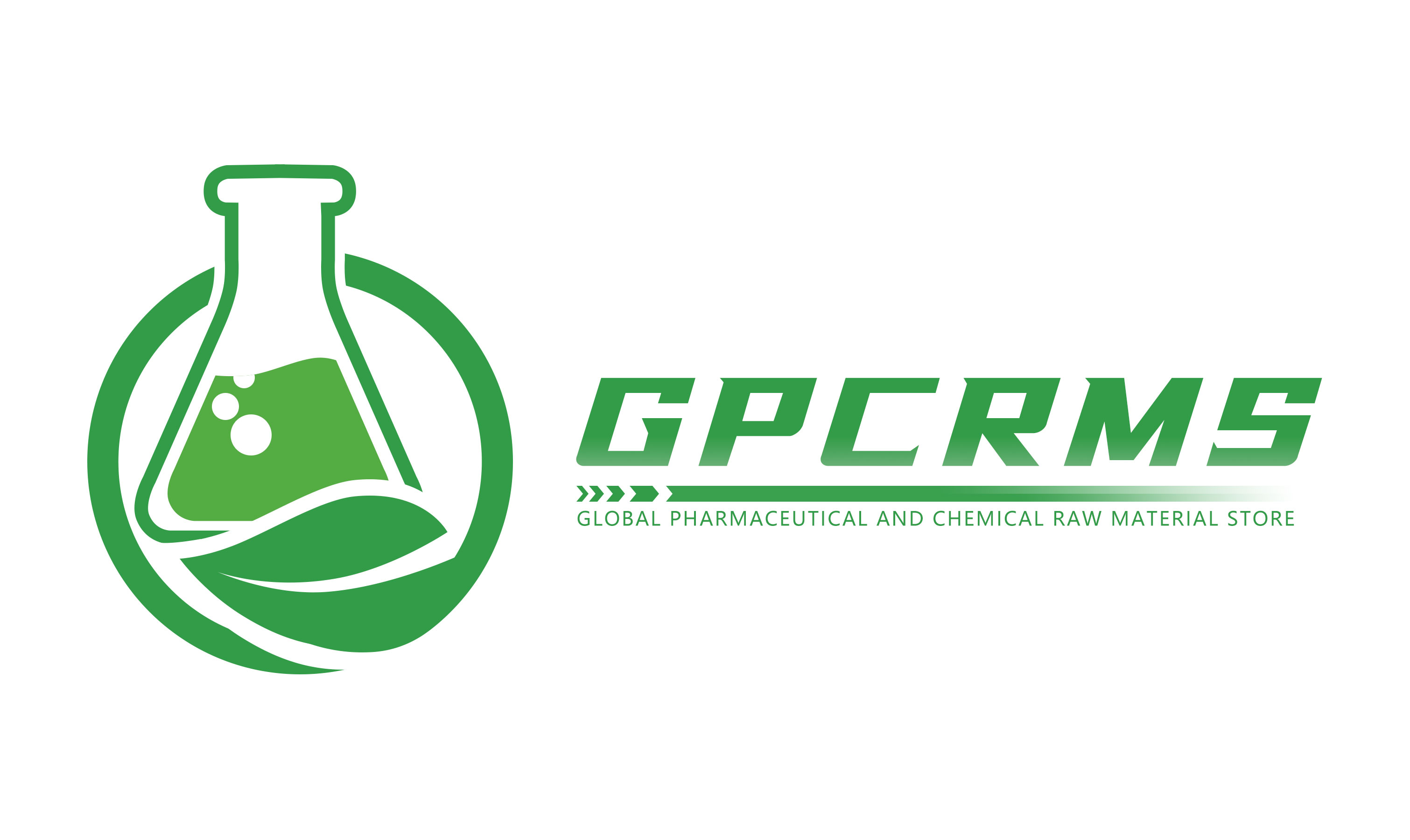Testing the Solubility of 1g RAD140 Powder in PEG400
Understanding the solubility of RAD140 in various solvents is essential for proper preparation and usage. Polyethylene glycol 400 (PEG400) is a versatile solvent often employed in research and pharmaceutical formulations due to its low toxicity, excellent solubilizing properties, and compatibility with many organic compounds. In this experiment, we evaluated how 1g of RAD140 powder dissolved in PEG400, documenting the process, results, and key takeaways.
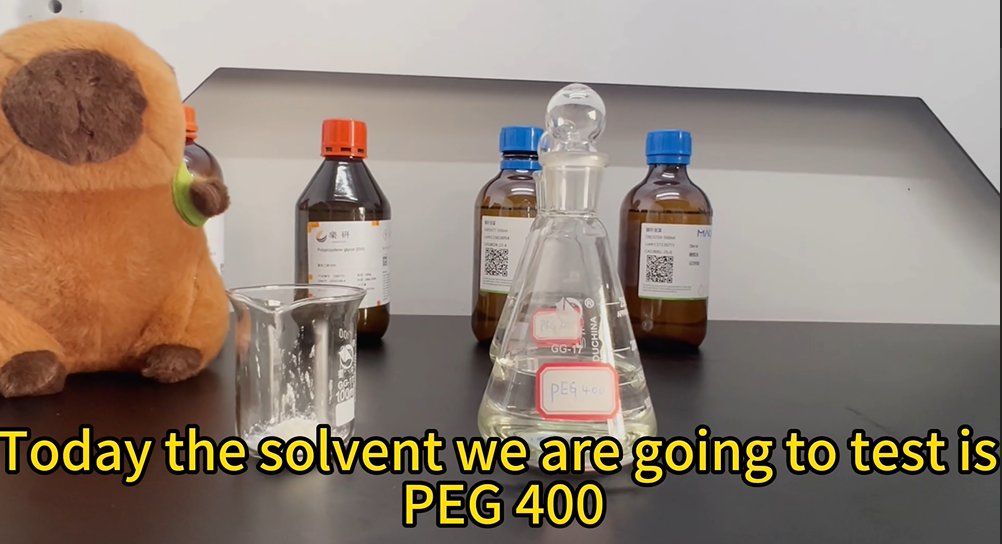
Step-by-Step Testing Process
Just like before, we start by adding 1ml of the solvent PEG400 and keep adding up to 10ml. While observing how it dissolves.Let’s get started .
Initial Addition (1ml):
First, take 1ml of PEG400 and add it to the 1g of RAD140 powder. Give it a slight shake, we can see there is no obversely signs of it dissolving.
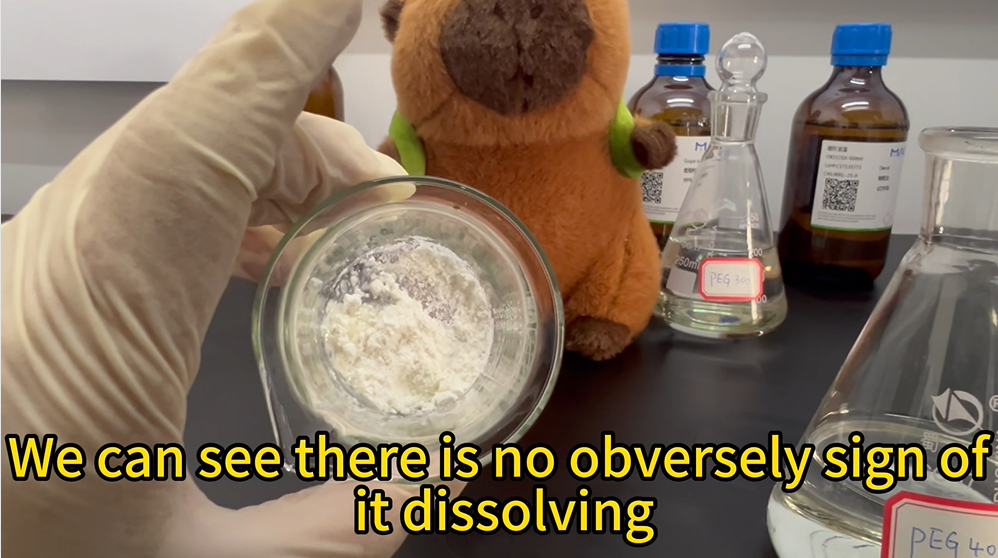
2ml
Let’s add another 1ml(total 2ml). Give it a shake and we can see that the mixture is getting more viscous. But it still doesn’t look like it is dissolving.
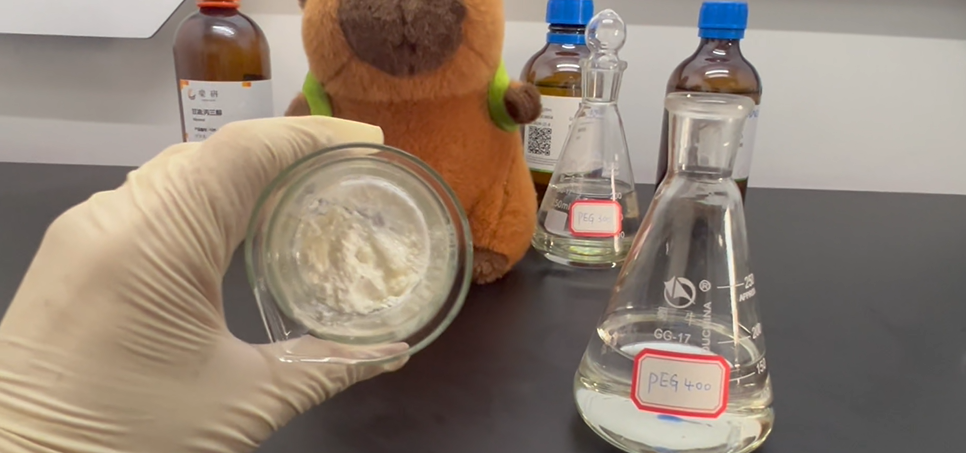
3ml
Let’s add another 1ml (total 3ml).
You may be wondering why we are not using a stirring rod. Well, based on our experience, if there is no obversely sign of dissolution, before the solvent is added to 5ml, using a stirring rod will not be of much help.
Alright, we’ve added 3ml of PEG400. We still haven’t started stirring yet, then we can see that the solvent and powder had started to blend a little.
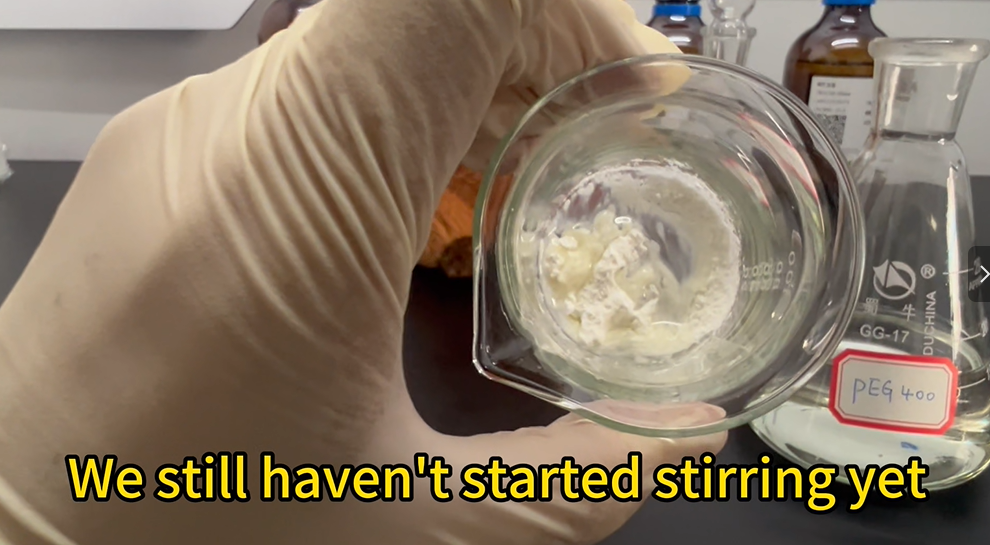
4ml
Let’s add another 1ml and shake it again. After solvent went to 4ml, we can see most of the PEG400 and powder has mixed together
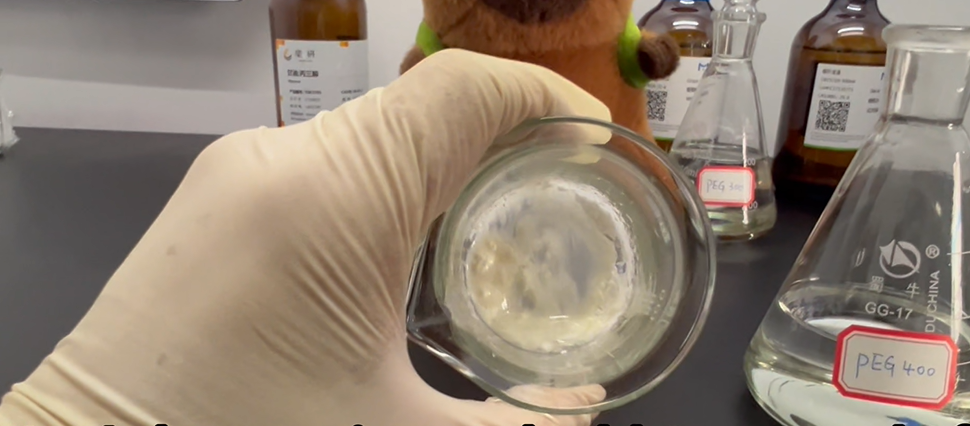
5ml
Let’s keep going and add one more ml, so now we have added a total 5ml of PEG400. Most of the RAD140 powder has mixed with PEG400.
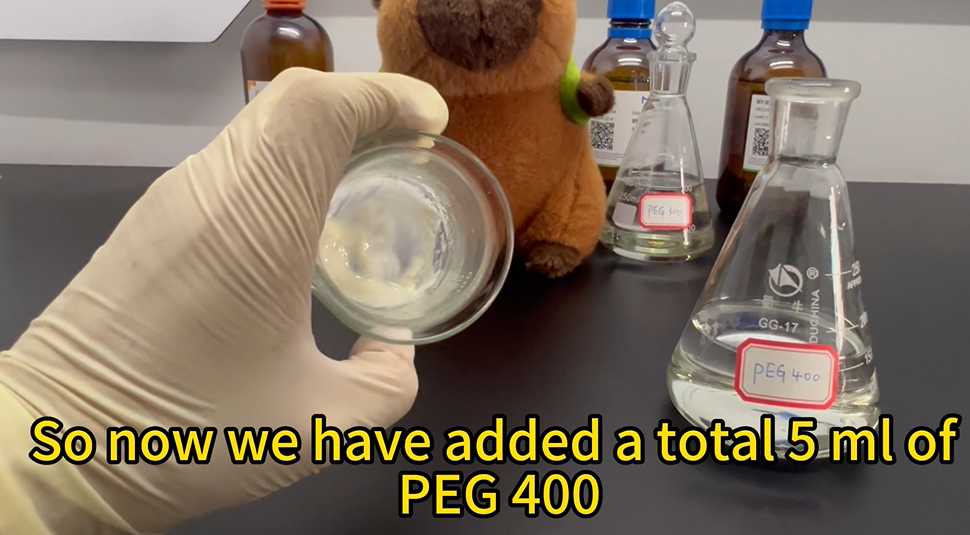
6ml
Let’s add up to 6ml and see what would happens.
Now the solution is covering all the powder. At this point, we can use the stirring rod.
After stir, we notice that the beaker is moving along with the stirring, which shows that the mixture is very viscous.
After stirring for a while, it is clear that 6ml of PEG400 hasn’t fully dissolved the 1g of RAD140 powder

10ml
Since 6ml of PEG400 haven’t fully dissolved the 1g of RAD140 powder, we directly added PEG400 to 10ml.
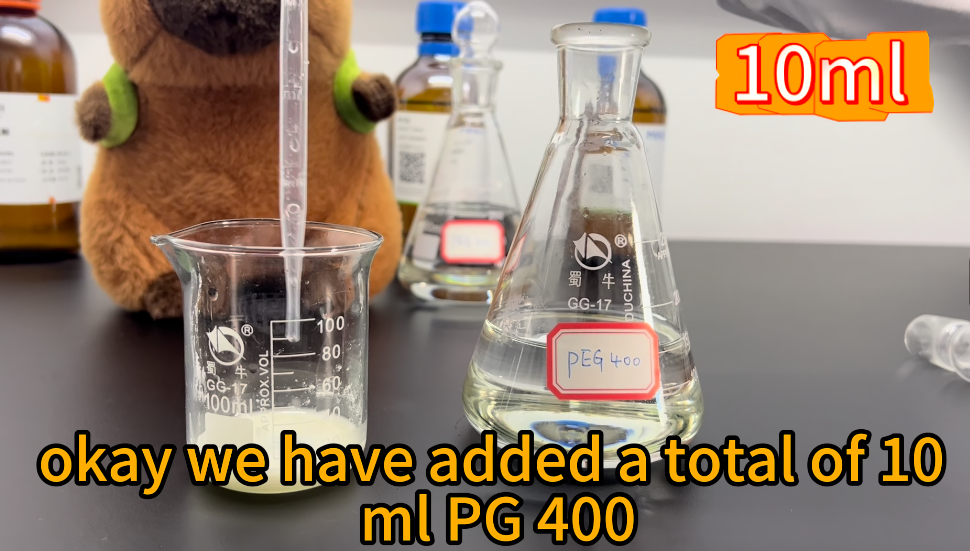
After we have added a total of 10ml PEG400, we use a glass stirring rod to mix it thoroughly.
Let’s take a closer look, the entire mixture is very very viscous, we’ll need to keep adding more solvent until we reach 20ml.
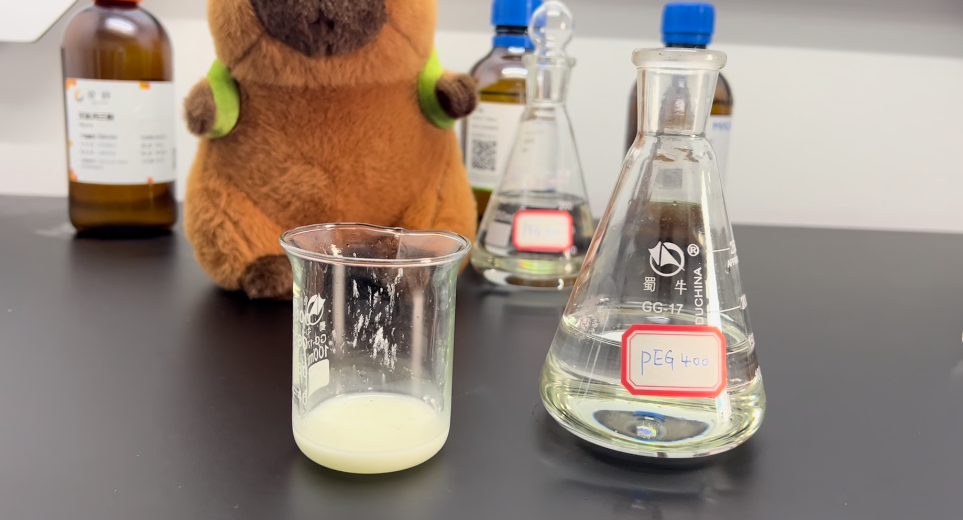
Incremental Increase (20ml):
Another 10ml of PEG400 was added, bringing the total volume to 20ml.
Still stirring to accelerate dissolution, the solution on the stirring rod appears a little clearer than before.
Next, let’s check the beaker: The solution looks like a milky white, viscous liquid. From this, it seems like the RAD140 isn’t dissolving very well. Let’s keep going an increased solution to 50ml.
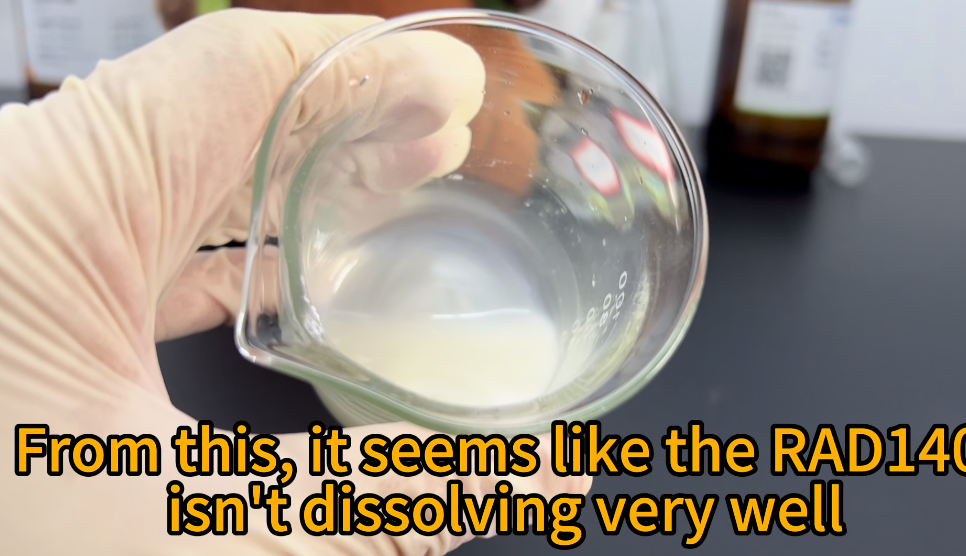
Further Increase (50ml):
After adding 30ml more PEG400, making a total of 50ml. We continue stirring to make sure it’s fully mixed.
The liquid has not changed much, only becoming slightly clearer, but still viscous.
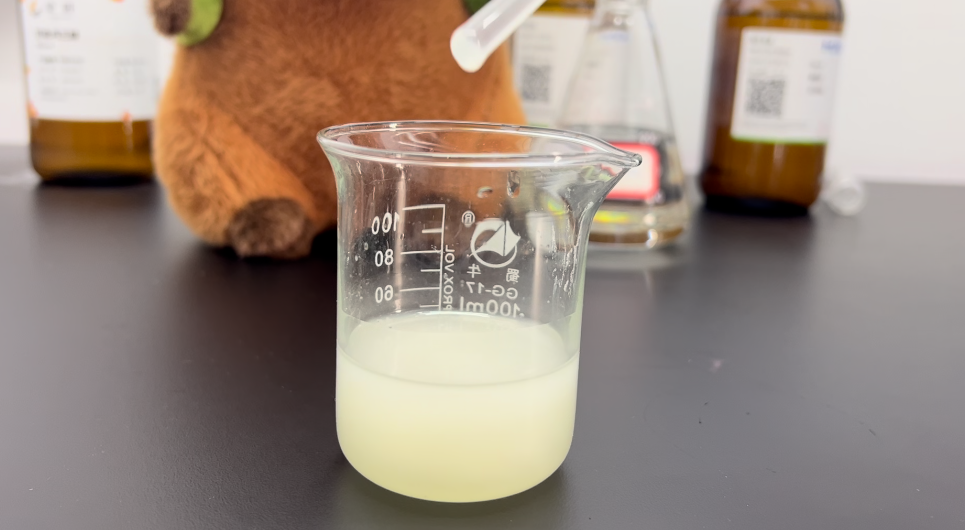
Let’s let it stand for three minutes. After letting it settle, we can see that 50ml PEG400 has dissolved almost all of the 1g RAD140 sample.
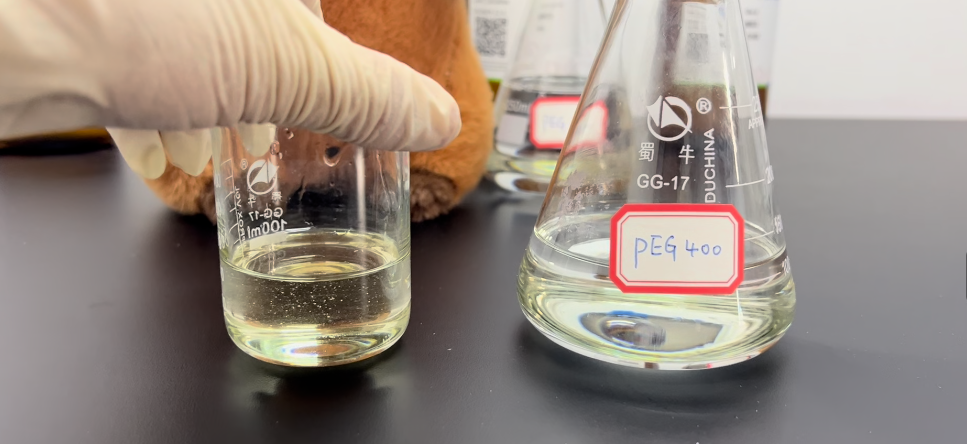
Why do I say almost, because if you look closely, there is still a tiny bit of powder in suspension, but it is very minimal.
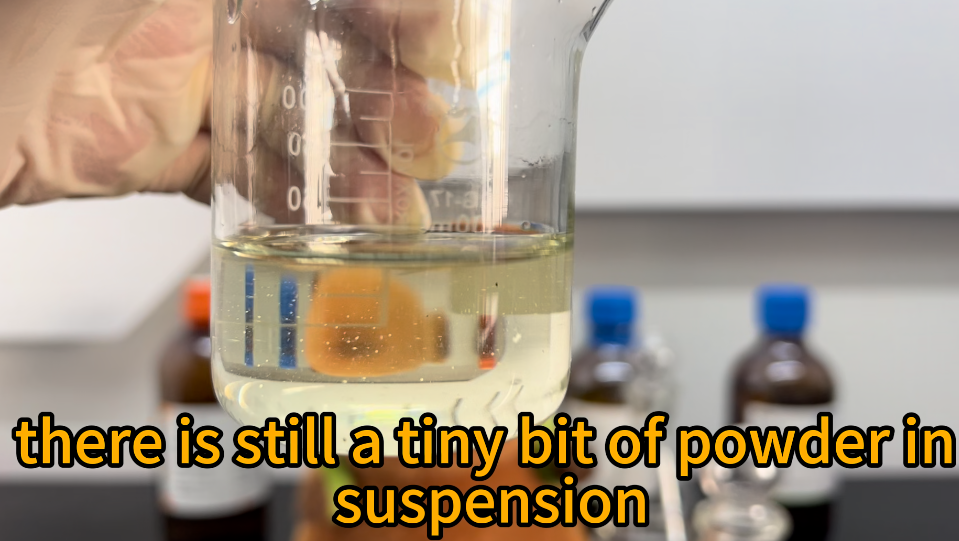
So the conclusion from this experiment is RAD140 powder dissolves pretty well in PEG400.

Discussion
The solubility test demonstrated that PEG400 is an effective solvent for RAD140, though it requires a relatively high volume compared to more potent solvents like DMSO or ethanol. The slower dissolution process and higher viscosity of PEG400 may be a consideration for certain applications. However, its low toxicity and compatibility with a wide range of compounds make it a valuable option in scenarios where safety is a priority.
This data is particularly useful for researchers or formulators seeking to create stable and safe solutions of RAD140. The viscosity of PEG400 also provides an advantage in certain formulations, offering a more controlled release compared to less viscous solvents.
